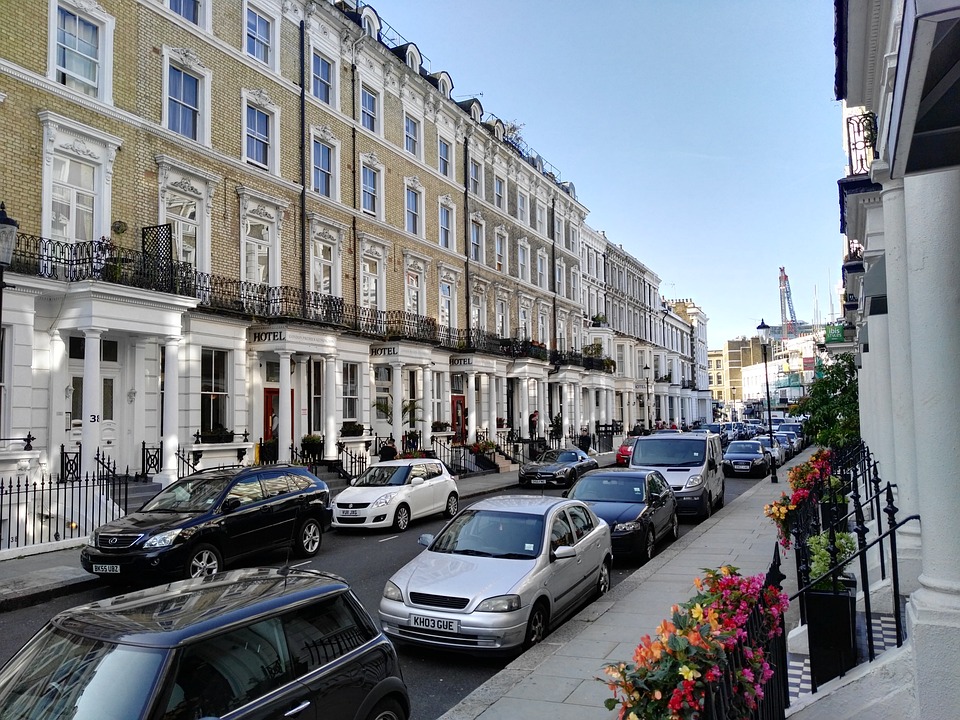The average asking price of property coming to market in July was £320,265, 2.4% (£7,640) higher than in March pre-lockdown, and the annual rate of increase (3.7%) was the highest since December 2016, according to Rightmove’s July House Price Index.
Year-on-year buyer enquiries increased by 75% in Britain since the start of July, while 44% of new listings that came up for sale in the first month after the English market opened on 13 May have already been marked as sale agreed, compared to 34% for the equivalent dates last year.
The number of monthly sales rose 15% in England on last year, and in the five days after the stamp duty announcement it rose 35% above levels from the same days one year previous.
The number of properties coming to market in July was up by 11.1% compared to a year ago, despite Scotland and Wales not contributing for the full period, and total available stock recovering to being 13% down.
40,741 (44%) of the 92,085 newly listed properties in the first month after the English market reopened have already found a buyer, compared to 34% for the equivalent dates last year.
Miles Shipside, director and housing market analyst at Rightmove, said: “The unexpected mini-boom continues to gather momentum as more nations reopen.
“Overall buyer enquiries are up by an incredible 75% year-on-year in Britain and we expect activity will increase even further as Scotland has not yet been open for a full month, and Wales still has some housing market restrictions in place.
“The busy until interrupted spring market has now picked up where it left off and has been accelerated by both time-limited stamp duty holidays and by homeowners reappraising their homes and lifestyles because of the lockdown.
“The strength of buyer demand has contributed to record prices, with the 3.7% annual rate of increase being the highest for over three and a half years.
“These figures are the earliest indicator of house price trends. They show on average prices gently rising not falling, and this will be reflected in the coming months in other house price reports.”
To find out more about how we can assist you with your Mortgage requirements, please click here to get in touch
Shipside added:”There is a window of opportunity for sellers to come to market and to find a buyer who is tempted by the stamp duty savings.
“Although March next year may sound like a long time away, in reality sellers need to find a buyer before Christmas, to allow a further three months for completion of the legal process to beat the deadline.
“While property is selling much faster than a year ago, it’s important not to over-price and miss this window.
“It’s still a price sensitive market with buyers having limits on what they are able to borrow, and the uncertain economic outlook making them more cautious.”
He continued: “While most first-time buyers will not benefit from the stamp duty holiday, as they were already exempt from stamp duty on purchases of up to £300,000, many will benefit from lenders now starting to bring back first-time buyer mortgages for up to 90% of the purchase price.
“Lower-deposit lending helps to boost buyer activity on the all-important first rung of the ladder, which in turn helps to boost the numbers of second-steppers who are able to trade up, and so also enables others higher up the chain to move.”
Marc von Grundherr, director of Benham and Reeves, said: “Oh, ye of little faith. Previous reports from a number of ‘doomster’ commentators as to the demise of the UK property market seem to have been greatly exaggerated as if often the case.
“Prices are up, enquiries are through the roof and sales are being agreed like billy-o, and that’s even before the effects of the temporary stamp duty reprieve have had time to kick in.
“Hold on tight folks, we’re in for a fast ride over the next few months and prices will rise further as a consequence of this unprecedented demand.
“Albeit somewhat fabricated by a chancellor determined to bolster the flagging economy via the property market.”
James Forester, managing director of Barrows and Forrester, said: “Light the blue touch-paper indeed. Such significant levels of buyer activity are unheard of within the UK market and should ensure a nitrous-oxide fuelled return to form for the UK property market.
“This is, of course, a result of a double whammy of pent up demand that had been throttled during lockdown and the latest government incentives via a huge stamp duty saving.
“While the market will return to a more familiar form of ‘normality’ as this demand levels out, it has truly defibrillated any fears of a downturn in home values.
“In addition to this, the government’s continued failure to address the UK’s housing shortage will ensure that even when buyer demand returns to normal levels, prices will remain buoyant due to the supply and demand imbalance.”
Islay Robinson, CEO of Enness Global, added: “We are now seeing a welcome boost in mortgage lending at all levels of the market, especially for first-time buyers, which will help fuel the market from the bottom right through to those transacting at the very highest price brackets.
“The latest Rightmove numbers also show that at last, London is back in positive territory.
“As the cornerstone of the UK property market, good health across the capital will help drive the market forward on a national scale with the figures also showing that it is the more expensive homes that are rising in value the most, 4% up in asking price terms since March.
“So it would seem that this return to prominence is being driven by the well-heeled buyer as well as a heightened level of foreign investment, buoyed by favourable mortgage terms and current exchange rate advantages.
“With buyers returning in their droves, we can rest assured that these positive trends will continue for the remainder of the year.”
By Jessica Bird
Source: Mortgage Introducer








